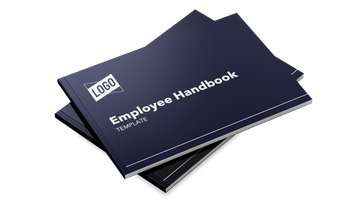Can an employee who makes minimum wage or above accept tips from customers?

Table of contents
- 1.The Fair Labor Standards Act (FLSA) sets the standard
- 2.Special rules for tipped employees
- 3.Federal and local minimum wage laws
- 4.Final tips about tipping
- 5.Helpful links:
Generally, employees making minimum wage or greater may accept tips from customers.
Here's an important tip for employers between direct wages and tips make sure that you're paying employees at least the federal minimum wage.
The Fair Labor Standards Act (FLSA) sets the standard
The Fair Labor Standards Act (FLSA) doesn't include any language that prohibits employees who make more than the minimum wage from accepting tips. It does, however, guarantee that employees will make at least the federal minimum wage with direct wages and tips combined.
Special rules for tipped employees
Tipped employees usually and routinely receive more than $30 per month in tips. When it comes to paying tipped employees, Section 3(m) of the FLSA allows employers to take a tip credit to meet the federal minimum wage requirement. While not all states allow employers to take a tip credit, in general, the credit is the amount of money an employer doesn't need to pay toward employees' federal minimum wage. So, employers must provide a wage of at least $2.13 per hour, and then can take a tip credit up to $5.12 in order to achieve the federal minimum wage.
At the end of the day, an employer needs to make sure that their employees' combined wages and tips equal at least the federal minimum wage, or the employer needs to make up the difference.
Federal and local minimum wage laws
When federal and local laws collide, employees take home the change. Employees are entitled to whichever law provides them the greatest benefit.
To determine your state's minimum wage laws for tipped employees, Google your state's laws by searching your state's minimum wage laws for tipped employees. For example, in Alabama, there's no state minimum wage, so if a valet driver making $5 per hour made $20 for a 4 hour shift and received an additional $4 in tips, their shift pay would equal $24. However, the federal minimum wage is $7.25 per hour, so the employer is required to make sure the the employee receives at least $7.25 times the 4 hours worked, or $29.
Note that some cities, such as San Francisco, have a minimum wage that is higher than the state one, so Google your city and minimum wage to check if your city has its own minimum wage.
Final tips about tipping
There often aren't clear-cut rules for tipping certain professions. For example, when the cable technician comes out to your home in Oregon and does an exceptional job, you may want to offer them something more than a cool drink. Even though they likely make over the $9.25 Oregon minimum wage rate, and they may not be expecting a tip, they could be tipped and should be allowed to keep the tip.
Helpful links:
State Labor Laws - DOL.gov - Minimum wage laws for regular and tipped employees
Fact Sheet #15: Tipped Employees Under the Fair Labor Standards Act- DOL.gov - Fact sheet about federal law pertaining to tipped employees

Lauren Perales
Table of contents
- 1.The Fair Labor Standards Act (FLSA) sets the standard
- 2.Special rules for tipped employees
- 3.Federal and local minimum wage laws
- 4.Final tips about tipping
- 5.Helpful links:






